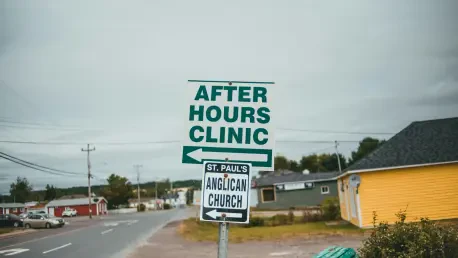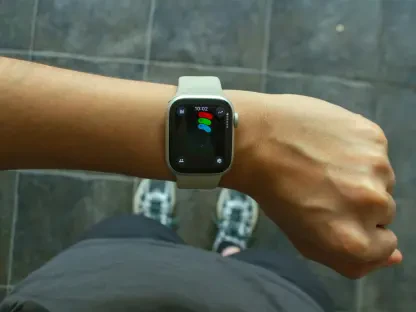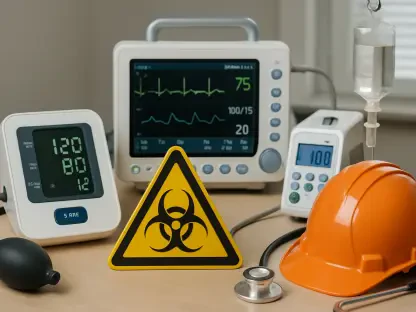In a move aimed at addressing healthcare disparities in rural Virginia, the community health forum held at Virginia Credit Union Stadium in Fredericksburg emerged as a significant event. Sponsored by Mary Washington Healthcare and the Fredericksburg Free Press, the forum provided a vital platform for discussing healthcare delivery strategies focused on underserved populations. The event came at a time when the need for innovative solutions to enhance health access in rural regions was increasingly being recognized. It brought together healthcare professionals, community leaders, and local government officials to deliberate on pressing health challenges and delve into ideas for improving medical services where they are needed most. This collaborative setting laid the groundwork for unveiling a novel healthcare service poised to make a profound impact in these areas.
Unveiling of the Mobile Clinic
Central to the forum’s initiatives was the introduction by the Rappahannock Area Health District (RAHD) of a new mobile primary care clinic. Allison Balmes-John, RAHD’s population health manager, took the stage to unveil plans for this highly anticipated mobile clinic. This audacious project is set to become operational by mid-year, transforming healthcare delivery for rural communities. Funded through collaborative efforts, including support from state and federal resources, the clinic represents a beacon for accessible healthcare where traditional infrastructure falls short. Originally geared toward providing essential services such as immunizations and management of sexually transmitted infections, the clinic’s scope has expanded due to the growing healthcare demands in rural locales. With the capability to offer comprehensive primary care, particularly crucial in areas where medical resources are scarce, the mobile clinic is poised to be a game-changer for numerous underserved communities.
Addressing Rural Healthcare Challenges
The mobile clinic’s launch is a strategic response to the pressing needs identified through the Community Health Assessment (CHA). These assessments, conducted consistently in RAHD’s jurisdiction, reveal critical data that spotlight healthcare access challenges. Undertaken triennially, the CHA offers insights from a variety of sources, including focus groups, surveys, and health data, underscoring the persistent gaps in health services in rural counties such as Caroline and Spotsylvania. The findings exposed alarming health statistics which underscore the importance of extending medical services into these regions. Issues such as adult obesity, hypertension, and mental health concerns have surfaced, reiterating that expanding healthcare access through initiatives like mobile clinics is not only timely but essential. Emphasizing comprehensive primary care, the RAHD’s mobile clinic aims to directly confront and mitigate these identified challenges, seeking to lower barriers to health services and enhance overall community well-being.
Community Health Assessment Insights
The compelling revelations from the Community Health Assessment represent a candid diagnosis of health conditions across RAHD’s jurisdiction. The data reflect concerning trends in adult obesity, with the district unfortunately surpassing state averages. In addition to obesity, high blood pressure emerges as another critical health concern, further exacerbated by figures that continuously hover above statewide rates. Depression rates also call for prioritized attention, as they exceeded state averages, highlighting mental health as a pivotal focus. As a tool to inform policy and programs, insights drawn from the CHA underscore the need for innovative healthcare delivery mechanisms. These findings played a pivotal role in shaping the RAHD mobile clinic initiative. By illuminating the nuances of health challenges in the region, the CHA provides a clear direction for targeted interventions—vital for crafting sustained improvements in community health outcomes.
Focus Areas for Improvement
The presentation of CHA findings at the forum brought to light five key issues demanding strategic redirection to improve healthcare outcomes within the district. Aging-related concerns form a fundamental area needing enhancement, alongside behavioral health issues that demand innovative approaches. Improvements surrounding healthcare utilization and access remain pivotal, highlighting disparities and opportunities for expanding service delivery. Physical activity and healthy eating further round the significant focus areas identified, emphasizing preventative measures as a cornerstone of health strategy going forward. This multidimensional assessment acknowledges social determinants of health as crucial contributors to health inequities, pointing towards broader societal shifts necessary to foster community wellness. Tackling these issues through deliberate and anticipatory efforts can lay the foundation for transformative change, ensuring healthcare access aligns more closely with community needs.
Enhancing the Healthcare Workforce
The forum emphasized the critical importance of workforce growth and education pathways in sustaining healthcare improvements. Dr. Nanette Graham from Germanna Community College outlined the integral role educational programs play in nurturing regional healthcare workforce capabilities. Highlighting initiatives like the behavioral health technician curricular program, Dr. Graham described how academic and fieldwork components prepare students for careers in mental health, a sector facing significant expertise shortages. Additionally, the innovative doula training initiative targets high infant mortality rates, equipping graduates with skills to enhance maternal healthcare outcomes. With backing from donations and community support, such programs help to close gaps in service provision, paving the way for more holistic healthcare delivery. These educational initiatives represent comprehensive strategies to meet increasing healthcare demands while empowering the future workforce to bridge current disparities.
Collaborative Efforts for Future Development
The launch of the mobile clinic is a strategic effort to address the urgent healthcare needs identified by the Community Health Assessment (CHA). These assessments are conducted regularly within RAHD’s jurisdiction to gather crucial data spotlighting healthcare access issues. Performed every three years, the CHA provides valuable insights from focus groups, surveys, and health statistics, emphasizing ongoing gaps in health services in rural areas like Caroline and Spotsylvania counties. Findings highlighted concerning health statistics, pointing to the necessity of providing medical services in these regions. Problems such as adult obesity, high blood pressure, and mental health issues have emerged, stressing that expanding healthcare via initiatives like mobile clinics is both timely and essential. By focusing on comprehensive primary care, RAHD’s mobile clinic aims to directly confront and address these challenges, striving to lower barriers to healthcare access and improve overall community wellness.









